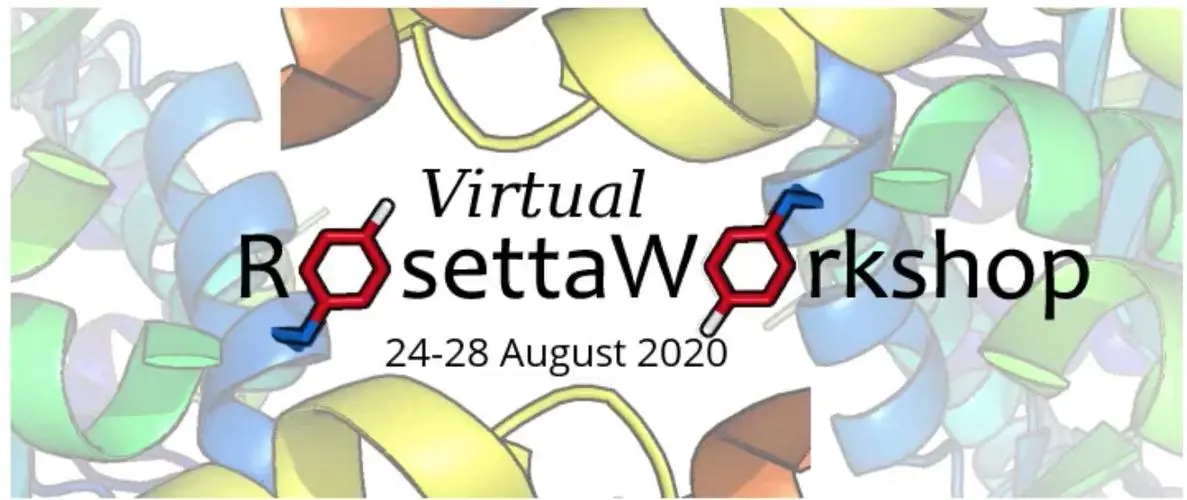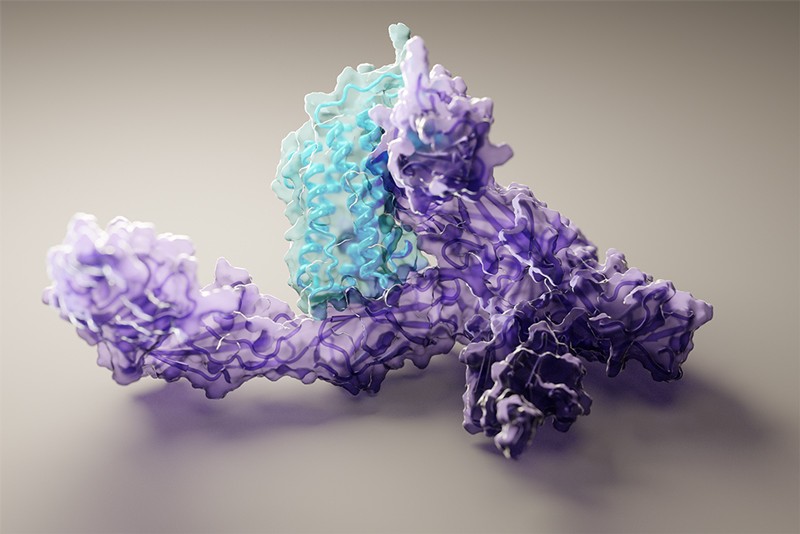
RosettaDock基础流程
RosettaDock基础流程
书接上文:linux下ZDOCK与ZRANK安装及基础使用方法
ZDOCK用于粗糙的全局对接搜索,得到的初始构象下一步用Rosetta进行refinement。
参考材料
官方文档及国内大佬们的介绍其实已经很清楚了,顺着学习应可以很快上手
Pierce B, Weng Z. A combination of rescoring and refinement significantly improves protein docking performance. Proteins. 2008 Jul;72(1):270-9. doi: 10.1002/prot.21920. PMID: 18214977; PMCID: PMC2696687.
Protein-Protein Docking
Controlling Input and Output in Rosetta
蛋白-蛋白复合物对接预测
complex preparation
从ZRANK中取前20个构象,分别命名为complex.1.pdb, complex.2.pdb…
#设置prepack的flag文件,命名为flag_prepack
-docking:partners H_A #按实际受体_配体
-docking::dock_rtmin true
-ex1
-ex2aro
-no_optH false
#prepack所有初始构象
mkdir ./prepack
for i in {1..20}
do
mpiexec -hostfile my_hostfile -n 2 $ROSETTA/main/source/bin/docking_prepack_protocol.mpi.linuxgccrelease -in:file:s /path_to_complex/complex.$i.pdb -out:path:all ./prepack @flag_prepack
mv ./prepack/complex.$i"_0001".pdb ./prepack/complex_prepacked_$i.pdb
done
local docking
In local docking, we assume that we have some information about the binding pockets of the two proteins.
分别对20个构象local docking,采样1000次(hostfile设置格式参考)
#设置local docking的flag文件,命名为flag_localdock
-partners H_A
-dock_pert 3 8
-ex1
-ex2aro
-nstruct 1000
mkdir ./local_docking
for i in {1..20}
do
mkdir ./local_docking/$i
cp ./prepack/complex_prepacked_$i.pdb ./local_docking/$i/complex_localdock.pdb
mpiexec -hostfile my_hostfile -n 144 $ROSETTA/main/source/bin/docking_protocol.mpi.linuxgccrelease @flag_localdock -in:file:s ./local_docking/$i/complex_localdock.pdb -out:path:all ./local_docking/$i
done
local refinement
Sometimes docked proteins score very high in Rosetta owing to small clashes. Before refining with relax, we need to fix the interface. Since the protein is already docked, we want to avoid large movements of the protein, so we skip the first, centroid mode stage completely and only run the high-resolution full atom mode which does not move the backbone of the docked proteins.
仅进行一次采样了
#设置local refinement的flag文件,命名为flag_localrefine
-partners H_A
-docking_local_refine
-use_input_sc
-ex1
-ex2aro
-nstruct 1
-out:file:fullatom
mkdir ./local_refine
for i in {1..20}
do
mkdir ./local_refine/$i
for j in {1..1000}
do
cp ./local_docking/$i/complex_localdock_$(printf "%04d" $j).pdb ./local_refine/$i/complex_localrefine_$(printf "%04d" $j).pdb
mpiexec -hostfile my_hostfile -n 2 --hostfile my_hostfile $ROSETTA/main/source/bin/docking_protocol.mpi.linuxgccrelease @flag_localrefine -in:file:s ./local_refine/$i/complex_localrefine_$(printf "%04d" $i).pdb -out:path:all ./local_refine/$i
mv ./local_refine/$i/complex_localrefine_$(printf "%04d" $j)_0001.pdb ./local_refine/$i/complex_localrefine_$(printf "%04d" $j).pdb
done
done
relax
Relax is the main protocol for relaxing a structure in Rosetta; that is, it samples conformations of a given structure close to it in 3D space to find the lowest-scoring variant, running both the packer and the minimizer alternately. This is usually done to enable an apples-to-apples comparison between disparate structures, including crystal structures and the output of Rosetta’s sampling protocols, by first minimizing them in local space according to the same score function. It is therefore advisable to run relax on any structures you intend to compare to each other.
仅进行一次采样了
#设置relax的flag文件,命名为flag_relax
-relax:constrain_relax_to_start_coords
-relax:ramp_constraints false
-ex1
-ex2aro
-use_input_sc
-no_optH false
-nstruct 1
mkdir ./relax
for i in {1..20}
do
mkdir ./relax/$i
for j in {1..1000}
do
cp ./local_refine/$i/complex_localrefine_$(printf "%04d" $j).pdb ./relax/$i/complex_relax_$(printf "%04d" $j).pdb
mpiexec -hostfile my_hostfile -n 2 $ROSETTA/main/source/bin/relax.mpi.linuxgccrelease @flag_relax -in:file:s ./relax/$i/complex_relax_$(printf "%04d" $j).pdb -out:path:all ./relax/$i
mv ./relax/$i/complex_relax_$(printf "%04d" $j)_0001.pdb ./relax/$i/complex_relax_$(printf "%04d" $j).pdb
done
done
本文由 KoN 创作,如果您觉得本文不错,请随意赞赏
采用 知识共享署名4.0 国际许可协议进行许可
本站文章除注明转载/出处外,均为本站原创或翻译,转载前请务必署名
原文链接:/archives/rosettadock基础流程
最后更新:2022-08-19 19:15:07


